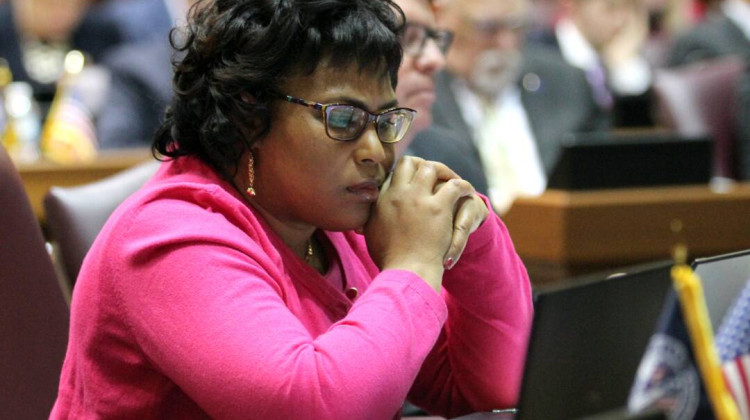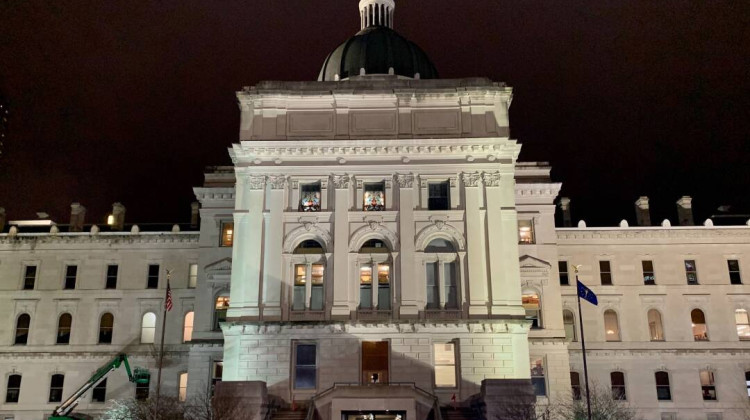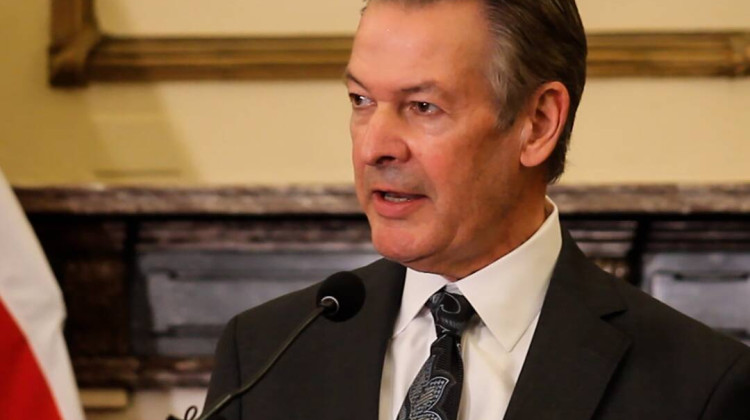
Senate Bill 265 would increase the maximum income threshold for families to qualify for TANF to 50 percent of the federal poverty level after two years.
Lauren Chapman/IPB NewsApplications to a federal program that provides financial assistance to families are rarely approved in Indiana. State senators almost unanimously passed a bill to bolster the Temporary Assistance for Needy Families (TANF) program Monday.
“[In] 1995, here in Indiana, 56,000 families received [TANF] benefits compared to 92,000 families in poverty, and another 25,000 in deep poverty,” said Sen. Jon Ford (R-Terre Haute). “In the 2019-20 fiscal year, the [TANF] numbers shrank to 6,338 even as the number of families in poverty, in deep poverty grew.”
Senate Bill 265, authored by Sen. Ford, would increase the maximum income threshold for families to qualify for TANF to 50 percent of the federal poverty level after two years.
Currently, a family of three has to have a net monthly income below about $300 to qualify for TANF. Ford said that family of three might still have to make less than $1,000 to qualify after the bill’s full proposed increase goes into effect.
“What doesn't change in this bill is TANF is a temporary program,” he said. “You must have 20 days of job search before the program is approved. There's a 24 [month] lifetime membership for adults and 60 months for children.”
The bill would also increase some maximum payment amounts families can get from TANF. For example, the maximum monthly payment for a child and one parent or guardian on the program would increase from $225 to $409. The bill would also require yearly cost-of-living adjustments.
Join the conversation and sign up for the Indiana Two-Way. Text "Indiana" to 73224. Your comments and questions in response to our weekly text help us find the answers you need on statewide issues throughout the legislative session. And follow along with our bill tracker.
Jessica Fraser, director of the Indiana Community Action Poverty Institute, spoke in full support of the bill during a committee hearing last week. She told lawmakers the increases to the income threshold and payments in this bill are extremely important – but still “quite modest.” She noted the income threshold proposed by the bill is still “deep poverty.”
“We know that there are more Hoosiers who could benefit from the services TANF can provide and we recognize that Hoosiers living in deep poverty face a lot of barriers to employment and to financial well-being,” she said. “Nearly 60% of working-age adults in Indiana who live in deep poverty were not in the labor force in 2021.”
She added TANF not only helps individuals but also could help the state meet its workforce development needs because of the program's “blend of case management, work participation, job readiness, childcare and transportation.”
“It's been a long time since TANF benefits were increased,” she said. “A lot has changed in 30 years, it's time TANF did too.”
This version of the bill only increases the maximum income limit and payments. That means the state Family Social Services Administration, which is responsible for administrating TANF, can still set a limit below those in the proposed law when deciding whether to accept families' applications.
“Of the block grant of $206 million, unobligated from that is $54 million from this last budget year,” Sen. Ford said. “So with this change, we would increase the spending on this to $28 million of the $206 million block grant.”
Similar bills have struggled to gain traction in past sessions but Ford told members of the Senate Family And Children’s Services Committee he was confident it would be well received by the house.
“I think there's been some committee changes over there in the house and there seems to be a more positive conversation,” he said. “I, to be honest, wasn't planning on bringing this if we didn't have more positive conversations over in the House.”
Adam is our labor and employment reporter. Contact him at arayes@wvpe.org or follow him on Twitter at @arayesIPB.
9(MDAyMzk1MzA4MDE2MjY3OTY1MjM5ZDJjYQ000))
 DONATE
DONATE








 Support WFYI. We can't do it without you.
Support WFYI. We can't do it without you.